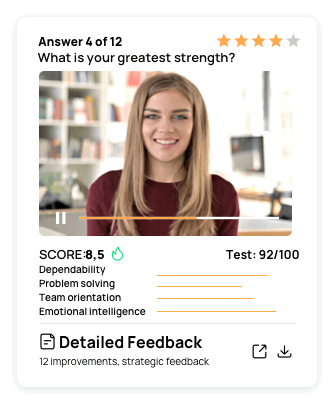-
What inspired you to become a piano teacher?
As a musician, I wanted to share my passion and knowledge of piano with others. I find great joy in seeing my students improve and develop their skills over time.
-
What experience do you have teaching piano?
I have been teaching piano for over 10 years, both privately and in music schools. I have worked with students of all ages and levels, from beginners to advanced pianists.
-
What teaching methods do you use?
I use a combination of traditional methods, such as scales and exercises, as well as more contemporary methods, such as playing popular songs and improvisation. I tailor my approach to the individual needs and learning style of each student.
-
How do you motivate your students?
I believe in setting achievable goals and celebrating the small successes along the way. I also try to make the lessons fun and engaging, by incorporating games and activities that help reinforce the concepts being taught.
-
How do you handle difficult or unmotivated students?
I try to identify the root cause of their difficulty or lack of motivation, whether it be a challenging piece or a personal issue. Once I understand their perspective, I work with them to find solutions and establish a plan for moving forward.
-
What is your teaching philosophy?
My teaching philosophy is based on the idea that every student is unique and deserves an individualized approach. I believe in creating a supportive and positive learning environment, where students feel comfortable to take risks and make mistakes.
-
How do you assess a student's progress?
I regularly evaluate a student's progress through assignments, performance evaluations, and exams. I also encourage students to self-assess and reflect on their own progress and areas of improvement.
-
How do you handle missed lessons or make-up lessons?
I have a cancellation policy in place, which allows for rescheduling of missed lessons with sufficient notice. I try to be flexible and accommodate make-up lessons whenever possible, but also have a limit on the number of make-up lessons per semester.
-
What do you expect from parents of your students?
I expect parents to support and encourage their child's learning by ensuring regular practice and attending recitals and performances. Communication is also important, so I encourage parents to provide feedback and updates on their child's progress.
-
What advice do you have for beginners?
My advice for beginners is to start with the basics, such as proper posture and hand placement, and focus on building a strong foundation. Practice regularly and be patient with yourself, as progress takes time and dedication.
-
How do you incorporate music theory into your lessons?
I believe music theory is an essential part of learning to play piano, so I incorporate it into my lessons on a regular basis. I use various methods, such as written exercises and worksheets, to reinforce concepts such as key signatures and chord progressions.
-
What are some common mistakes you see students make?
Some common mistakes I see include improper hand placement, lack of attention to dynamics, and rushing through difficult passages. I work with students to correct these mistakes and develop good habits early on.
-
What do you think makes a great pianist?
A great pianist is someone who not only has technical proficiency, but also an emotional connection to the music. They are able to blend technique with expression, and bring a unique interpretation to every piece they play.
-
What are your long-term goals for your students?
My long-term goals for my students are to develop a lifelong love of music and piano, and to be able to play fluently and expressively at a high level. I also encourage students to participate in recitals and other performance opportunities.
-
What do you enjoy most about teaching piano?
I enjoy seeing my students grow and develop as pianists and musicians, and sharing in their love of music. It is extremely rewarding to see the progress they make over time, and to help them achieve their goals and dreams.

 Professional
Professional Simple
Simple Modern
Modern Creative
Creative Premium
Premium Popular
Popular




